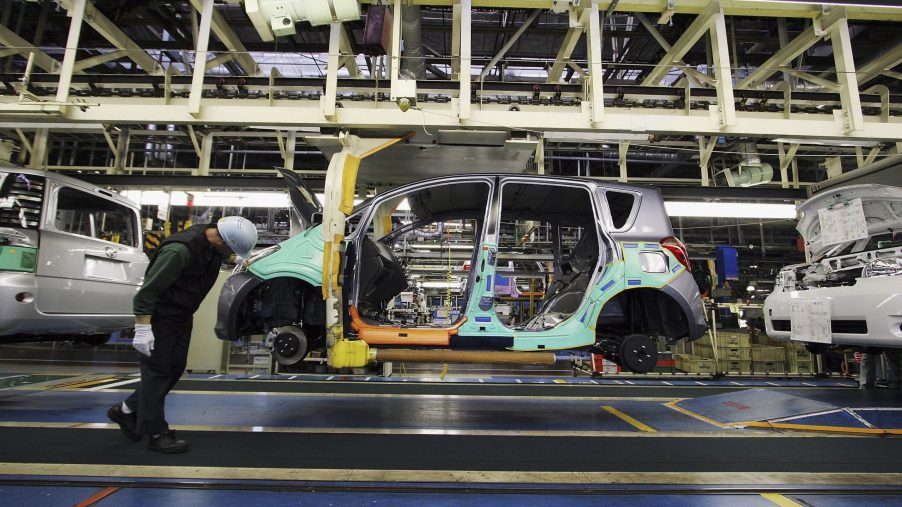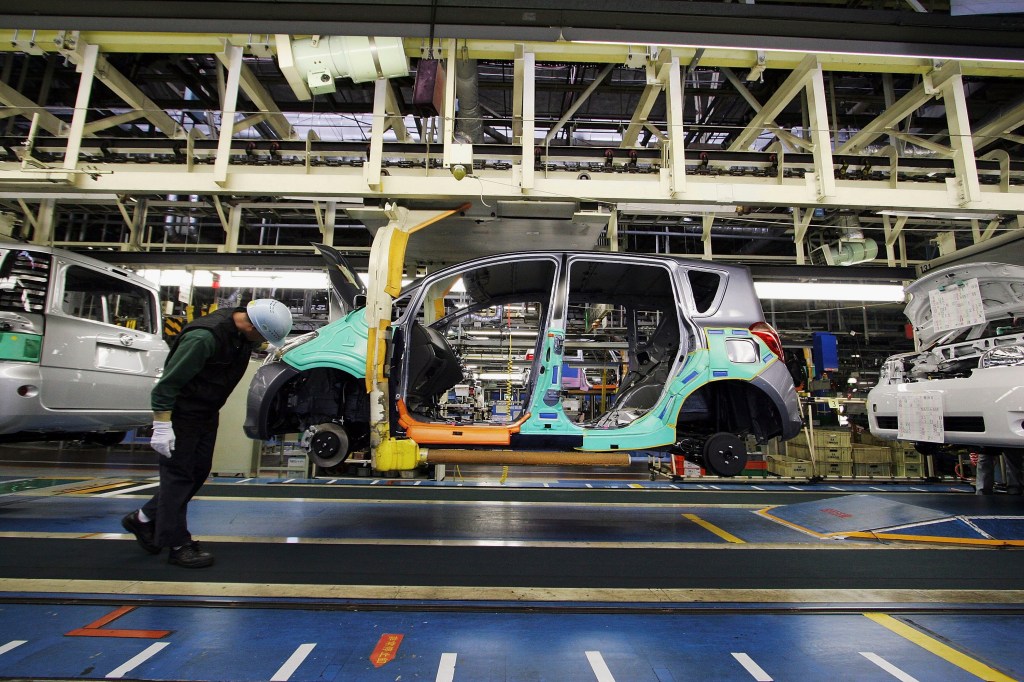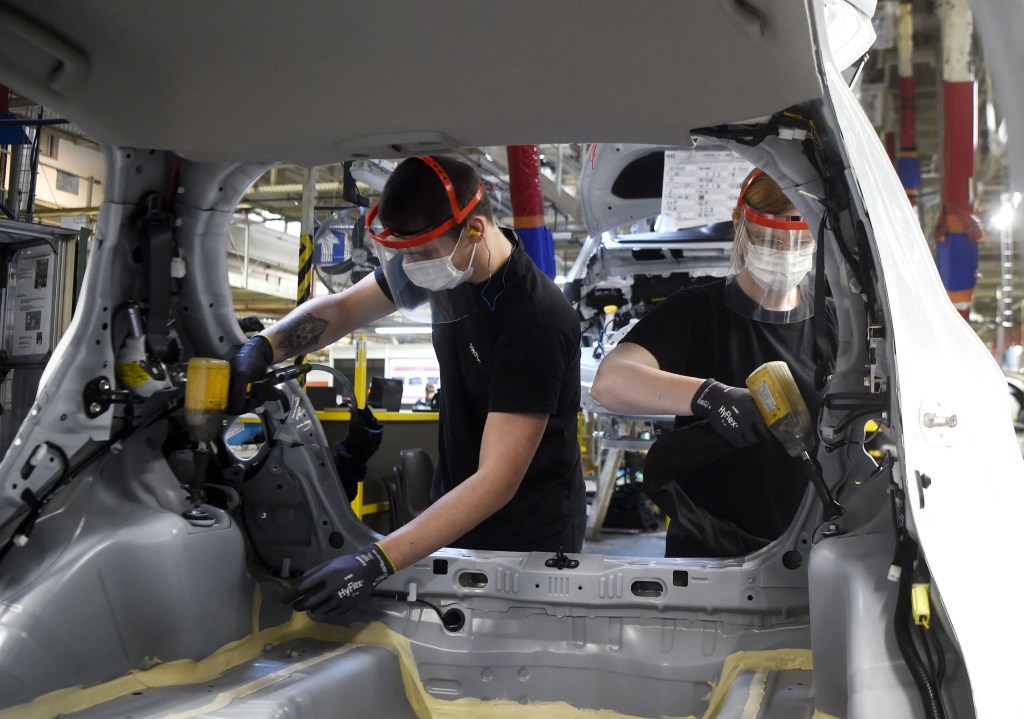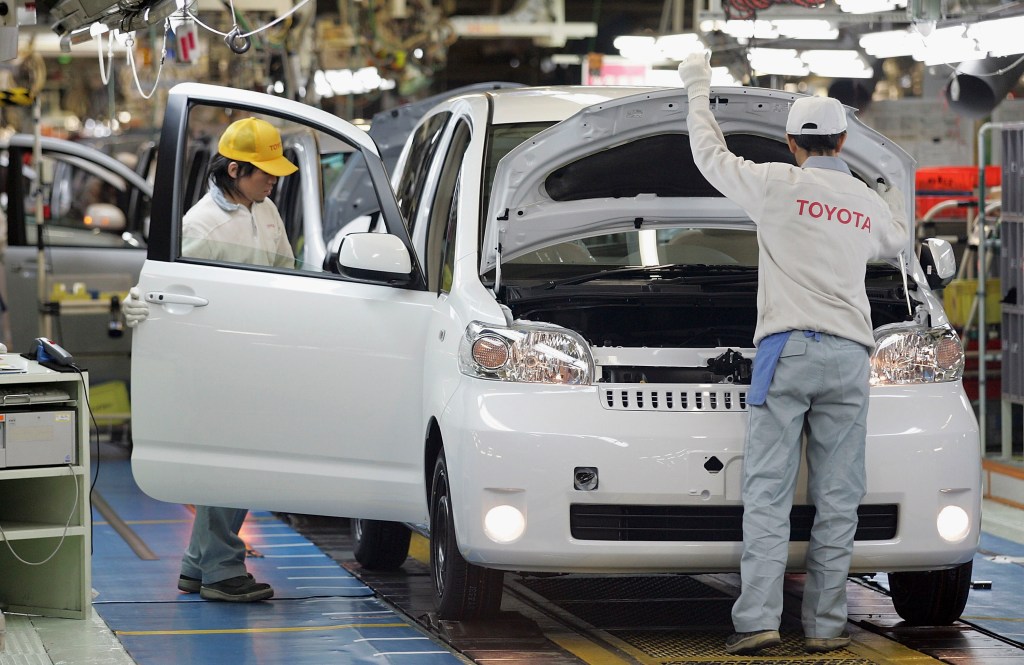
Toyota Reliability: How Two Principles Shape The Brand
Toyota reliability is legendary. Its cars are built on two design principles that shape the brand’s identity. Other automakers have been inspired by Toyota’s implementation of these principles and have begun adopting them.

Jidoka blends human engineering and robotic automation
The concept of jidoka blends the precision of automation with the intention of human engineers. This principle elevates the importance of improving a design flaw at the earliest states. Many manufacturers will retroactively engineer a fix to keep production rolling. Toyota believes it’s better to stop and correct a flaw to produce an optimized finished product.
At Toyota, jidoka means that every individual component of each vehicle is first made by hand. Each part is overdeveloped until it’s perfect before it’s included in a vehicle.
Once a component has been perfected, its production is slowly automated, and human engineering is phased out. When a part can be produced perfectly without human intervention, it can enter the production line. This slow and some might say old-fashioned approach has proven its merit.
Toyota reliability starts with minimalism
Typically, modern automakers emphasize automation to speed up production. While automation speeds up processes within strict parameters, small imperfections may go unnoticed. Utilizing the attention to detail of human engineers, Toyota ensures the automation process will be smooth.
This process takes time. As such, Toyota is reluctant to add new parts and processes to its lineup. Reusing components in multiple cars is not a unique practice. Many brands reuse components, but few pay such careful attention to their development.
Jidoka is the reason why Toyota offers few customizations and upgrade options. Each change to a design introduces more opportunities for inefficiencies and incompatibility issues. By keeping vehicles as simple as possible, Toyota avoids a lot of design and engineering headaches.
Kaizen opens up the design process

RELATED: The Toyota Corolla Is Cheaper and Better Today Than It Was 20 Years Ago
The philosophy of kaizen emphasizes acceptance of change in the name of improvement. Toyota encourages every employee to speak out about flaws or opportunities for improvement. This egalitarian approach means the brand has hundreds of thousands of contributors to every design.
At many manufacturing facilities, a production shutdown is avoided at all costs. Employees can be reprimanded for shutdowns deemed frivolous. Toyota employees don’t have this concern. They’re encouraged to stop production if they find a flaw.
At Toyota, it’s OK to miss a production goal if it means producing a superior product. The company prefers “just in time production,” meaning all allotted time should be used to work toward improvement. Saving time means opportunities may have been missed.
How do these factors contribute to Toyota’s Reliability?

How do the philosophies of kaizen and jidoka produce reliable and resilient cars? Manufacturing great parts and streamlining design at every stage of development aren’t the only byproducts of these ideologies. They help to form a larger brand culture behind these legendary vehicles.
The slow process of over-engineering every component means Toyota engineers are familiar with every part of every car. That level of expertise is invaluable in development. In-house experts are on tap at Toyota. What the brand lacks in speed, it makes up for in expertise.
Improving designs and eliminating flaws at the earliest stages of development is the key to owner satisfaction. Many issues with Toyota vehicles are caught before vehicles are released for sale. This means fewer recalls and owner repairs.
By emphasizing practicality, simplicity, and quality, Toyota has defined its place in the automotive industry. It’s one of the most popular car brands because people trust its cars to be dependable. The brand is proof of the elegance of simplicity.


